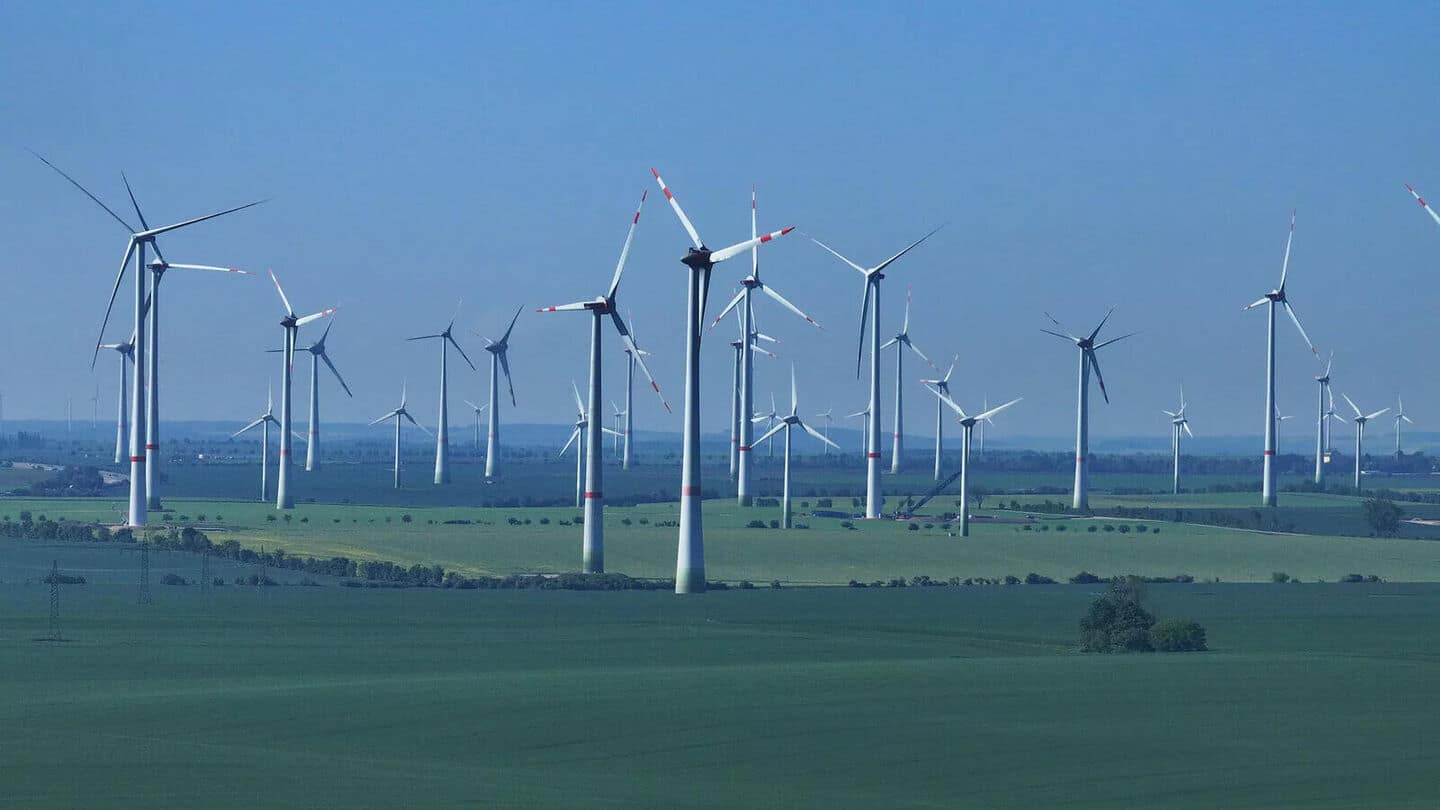
Why sharing wind-farm data with other countries will be banned
What's the story
The Indian government is set to tighten its cybersecurity protocols for the wind energy sector. The Ministry of New and Renewable Energy (MNRE) will soon issue a directive prohibiting the sharing of operational data related to Indian wind farms with other nations. The decision comes on the advice of National Security Advisor Ajit Doval and Niti Aayog, and is expected in about three weeks, Moneycontrol reported.
Implementation timeline
Data centers to be established in India
The new 'cybersecurity clause' will also mandate the establishment of research and development (R&D) and data centers in India within six months of the order. Despite requests from some foreign companies for an extension, the MNRE is unlikely to modify its draft cybersecurity guidelines. The rule applies equally to Indian and foreign manufacturers with units in India.
Cybersecurity concerns
Wind turbines more vulnerable to cyber attacks
Wind turbines are seen as a bigger cybersecurity threat than solar or thermal energy systems. This is because of their distributed nature, reliance on remote monitoring and control, as well as the potential for major disruption if compromised. A probe into "increased inroads by Chinese OEMs into the wind sector" was conducted by Doval in August 2022. It found that these systems are "highly vulnerable" to cyber attacks.
Vulnerability exposure
Foreign ownership of renewable resources a concern
The Niti Aayog report noted that wind turbines can communicate with utility operators and aggregators via a device called the power plant controller. This connectivity makes them vulnerable to cyberattacks, potentially compromising grid operations. Attackers can infiltrate the network via this route and move on to other high-value assets. The report also flagged concerns over foreign ownership of renewable energy resources in India, which might pose a threat to the national grid and critical data security.
Industry response
Indian manufacturers have welcomed the move
Indian manufacturers such as Suzlon have welcomed the move but also said that such regulations should have been implemented sooner. "We wrote to the MNRE saying we fully comply with these conditions. When you continue to have geographical tension, cyber security is of the utmost importance," said JP Chalasani, CEO of Suzlon Group.